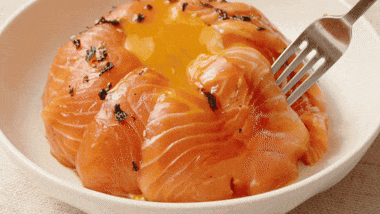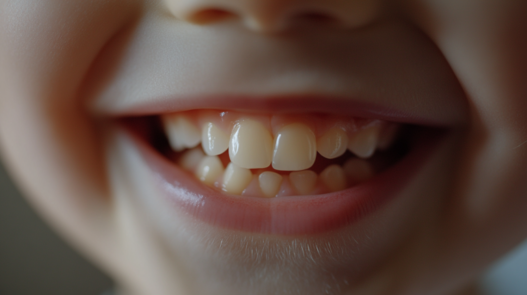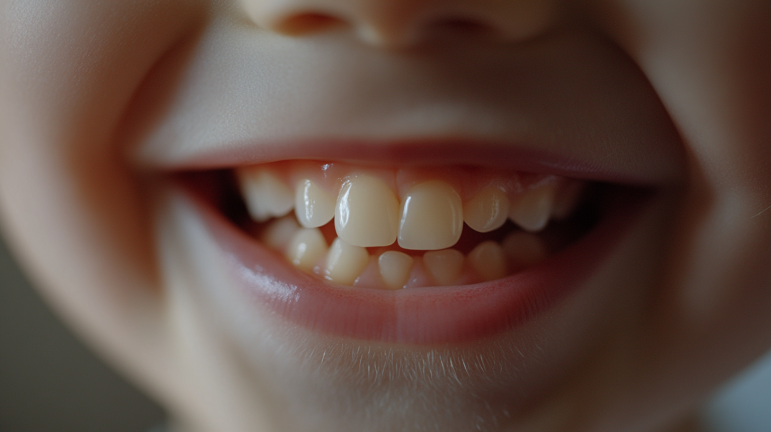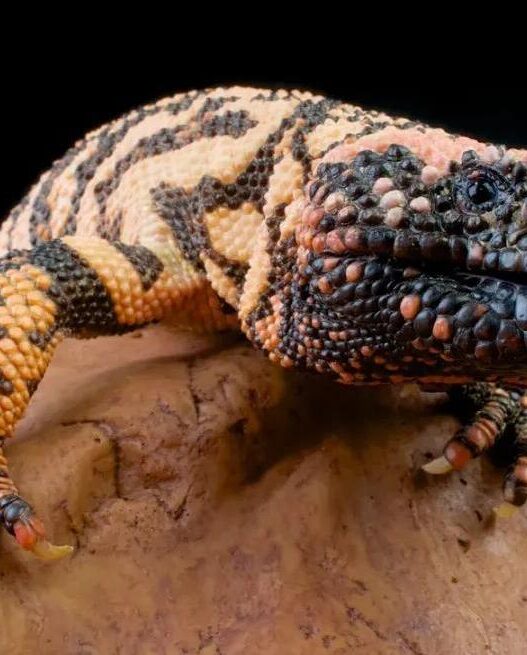As parents, we want to ensure our children’s teeth are healthy and strong. This gives them a lifetime of smiles. Many parents go to great lengths to prevent dental problems. But unknowingly, some well-meaning habits may do more harm than good. These common practices might be silently damaging your child’s teeth. Let’s take a look at five habits that could be harmful.
1. Feeding Soft Foods to Children Who Haven’t Fully Grown Teeth Yet
Many parents make sure their children eat soft, easy-to-chew foods. They cut up fruits or remove meat bones, even if the child can chew harder foods. This seems protective, but it can harm your child’s development.
Not chewing harder foods means the jawbone doesn’t develop properly. This can lead to “double teeth” — when adult teeth erupt before the milk teeth fall out. Moreover, avoiding tough foods reduces the use of the temporomandibular joint (TMJ). TMJ is important for jaw and facial development.
The World Health Organization recommends children over 12 months try different food textures. Whole fruits like apples or peaches are great to try. Let your child chew on harder foods like bones, under supervision, to help their jaw muscles develop.
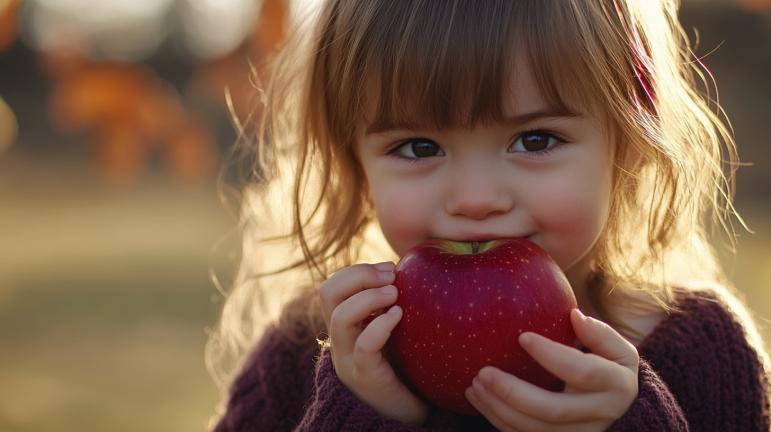
2. Brushing Teeth Immediately After Eating
Parents often think brushing right after meals is best to prevent cavities. But it’s not ideal after eating acidic or sugary foods. These foods lower the mouth’s pH and soften tooth enamel. Brushing right away can erode enamel and cause sensitivity.
It’s better to wait a bit before brushing. Encourage your child to rinse their mouth with water. If the food was acidic or sticky, use dental floss, a toothpick, or a water flosser for a more thorough clean.

3. Letting Your Child Brush Their Teeth Too Early or Without Supervision
It’s great to encourage independence, but many children under 10, or even older, can’t brush effectively. Electric toothbrushes are helpful, but they must be used with the right technique.
Studies show that even after learning the right way to brush, many kids still miss important steps. Parents should continue supervising until the child can brush correctly. Check if they can tie their shoes or write their name. Most children can brush independently by age 10. But check with a dentist to make sure they are brushing well.
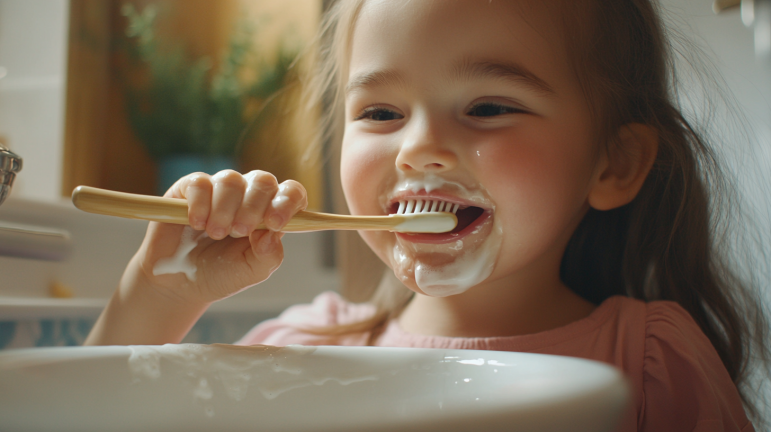
4. Using Whitening Toothpaste on Yellow Teeth
Parents sometimes see their child’s adult teeth are yellow and try whitening toothpaste. This is a common misunderstanding. Adult teeth naturally look yellow because the enamel is thicker and more transparent. The yellow dentin underneath shows through.
Whitening toothpaste is too harsh for kids’ teeth. These products contain abrasives that can wear down enamel. It’s best to use toothpaste designed for children. These are gentler and safer for their teeth.
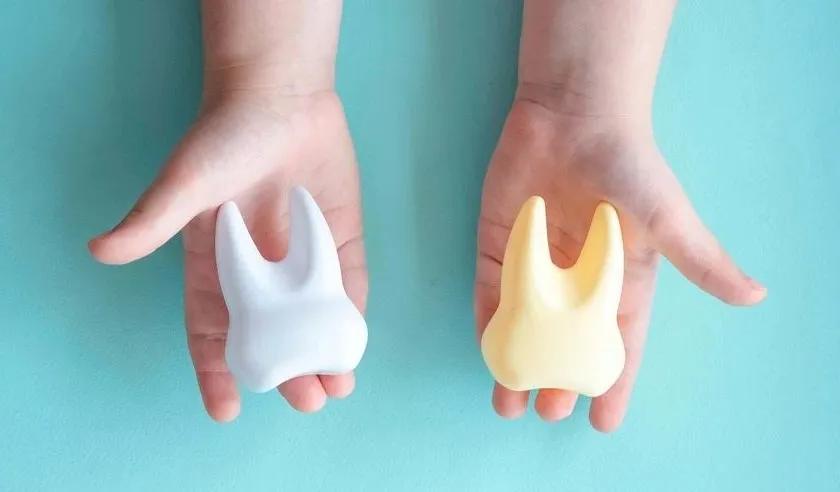
5. Scrubbing Stains Aggressively or Getting Professional Cleanings Too Early
Parents may panic when they see black spots on their child’s teeth. However, these spots are usually just surface stains. Here’s how to tell the difference:
- Pigmented stains: These can be brushed or scraped off.
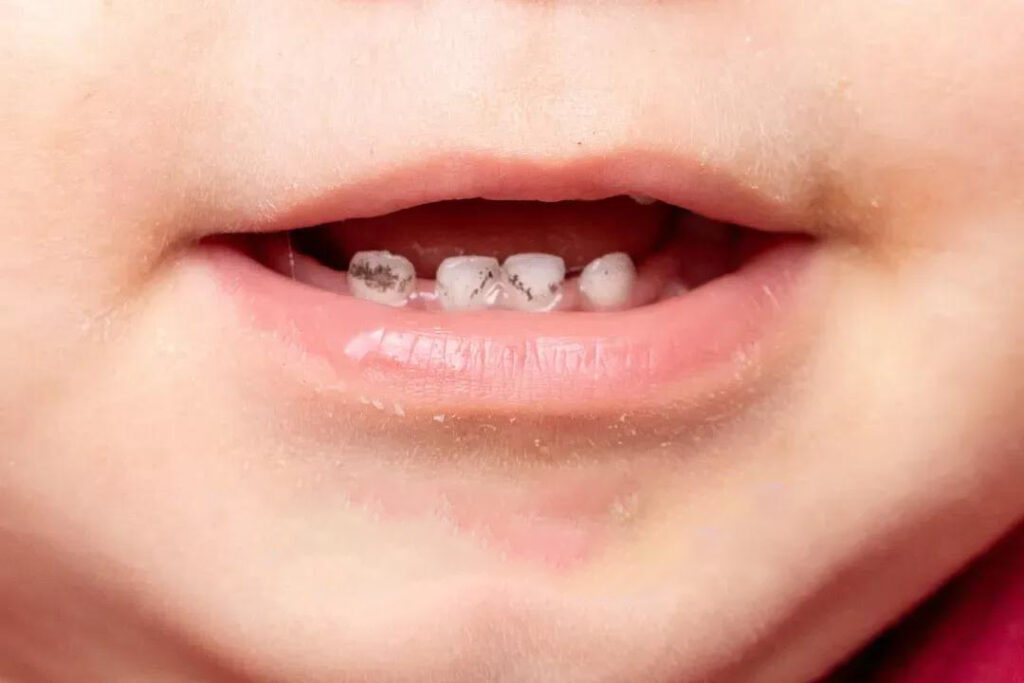
- Cavity marks: These are deep spots indicating decay.
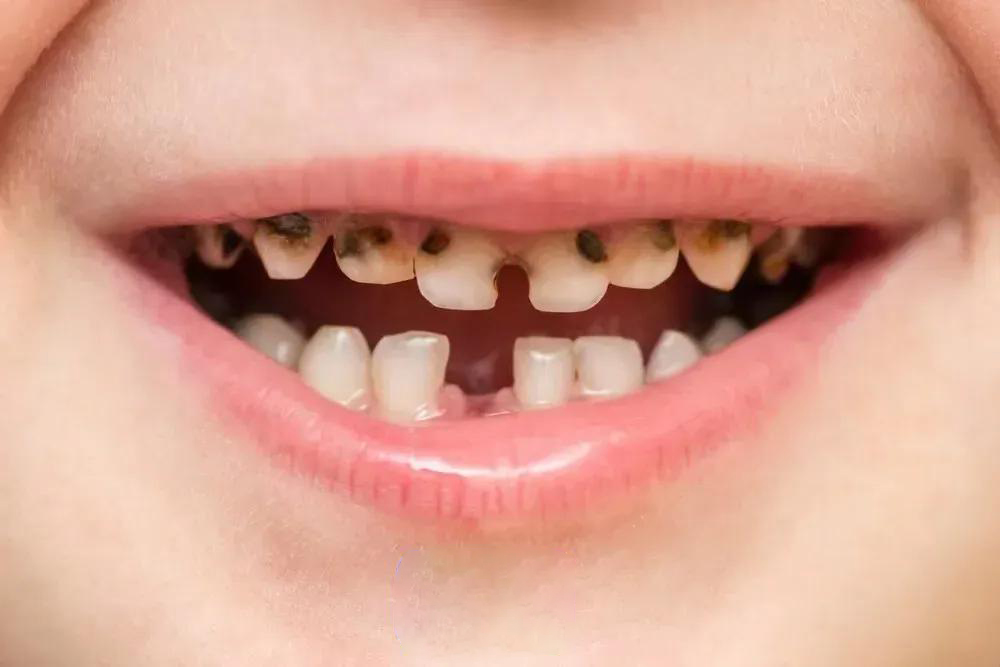
If the spots are stains, don’t scrub them aggressively. Overzealous brushing or ultrasonic cleaning could damage soft enamel. These stains often fade as your child’s teeth mature. If the staining persists, visit a dentist to rule out other issues.
Conclusion
We all want the best for our children’s teeth. But some habits that seem helpful can actually do harm. Be mindful of common mistakes and follow proper dental care practices. This will help your child have strong, healthy teeth for years. Consult a dentist for personalized advice. Remember, balance and caution are key!





